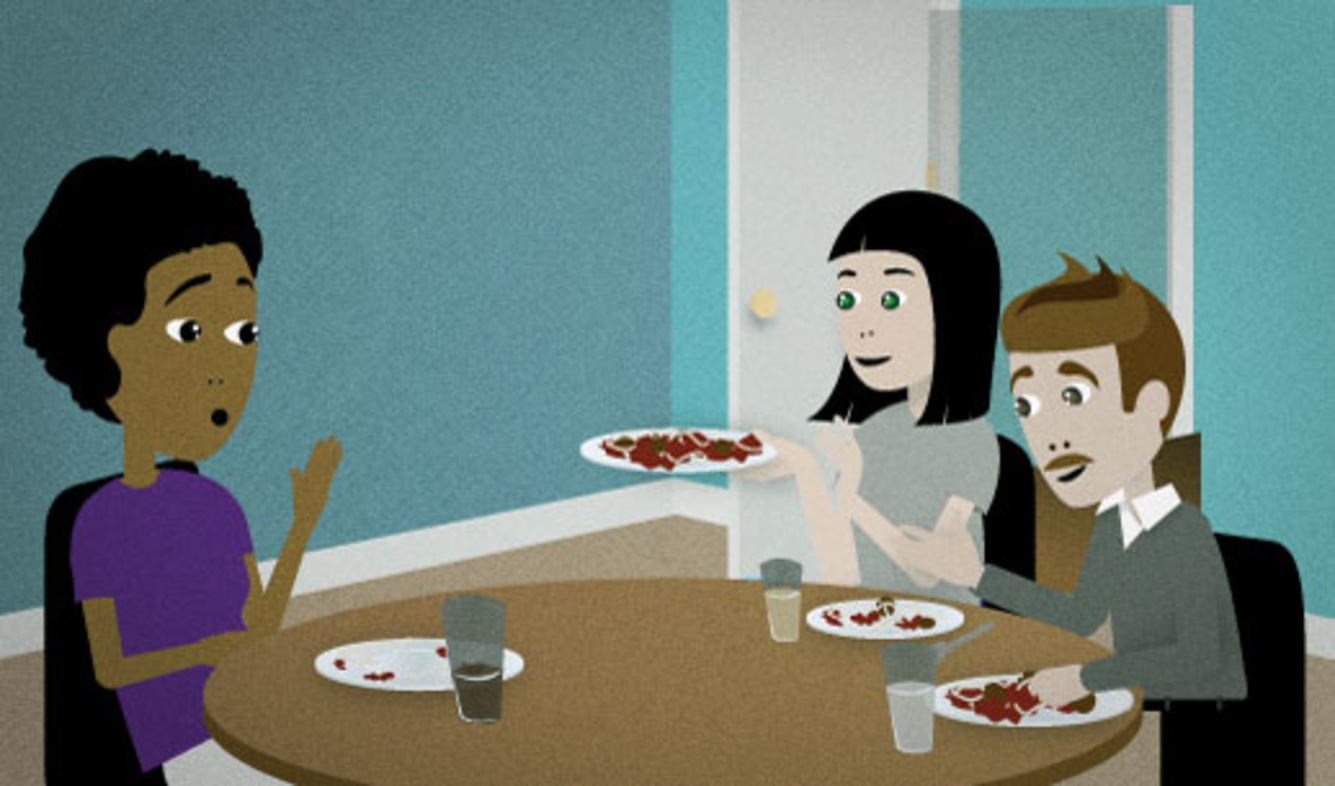“No, I couldn't possibly. I'm so stuffed.”
You just ate a big meal at a friend's house. Your friend offers you some more food, but you're too full. You say this to refuse.
No, I couldn't possibly. I'm so stuffed.
Want Video and Sound? Follow us on YouTube

so (adjective/adverb)
A lot of English learners say "very ___" when they want to strongly emphasize a description. But in reality, "very" doesn't sound very strong. It sounds more careful and polite.
"So ___" expresses a stronger feeling about something:
Oh my God, this is so good!
You used to sing so beautifully when you were little.
I couldn't possibly!
Say this when someone offers you something, and you want to politely refuse (or pretend to refuse). For example:
A: Here, I want you to have this.
B: Oh no, I couldn't possibly!
A: No, take it. I insist!
The sentence is a shortened version of "I couldn't possibly (accept that)!" It sounds quite formal.
I'm stuffed!
The phrase "I'm stuffed!" means that your stomach is very, very full. You can use this expression when you've eaten too much food. It's OK to use with anyone - friends, coworkers, clients, family, and so on.
One word of warning: the phrase "Get stuffed!" is a rude expression that you say to someone that you're angry at. So it's probably not a good idea to tell other people that they should "get stuffed". Just use this expression to describe yourself when you're too full.
